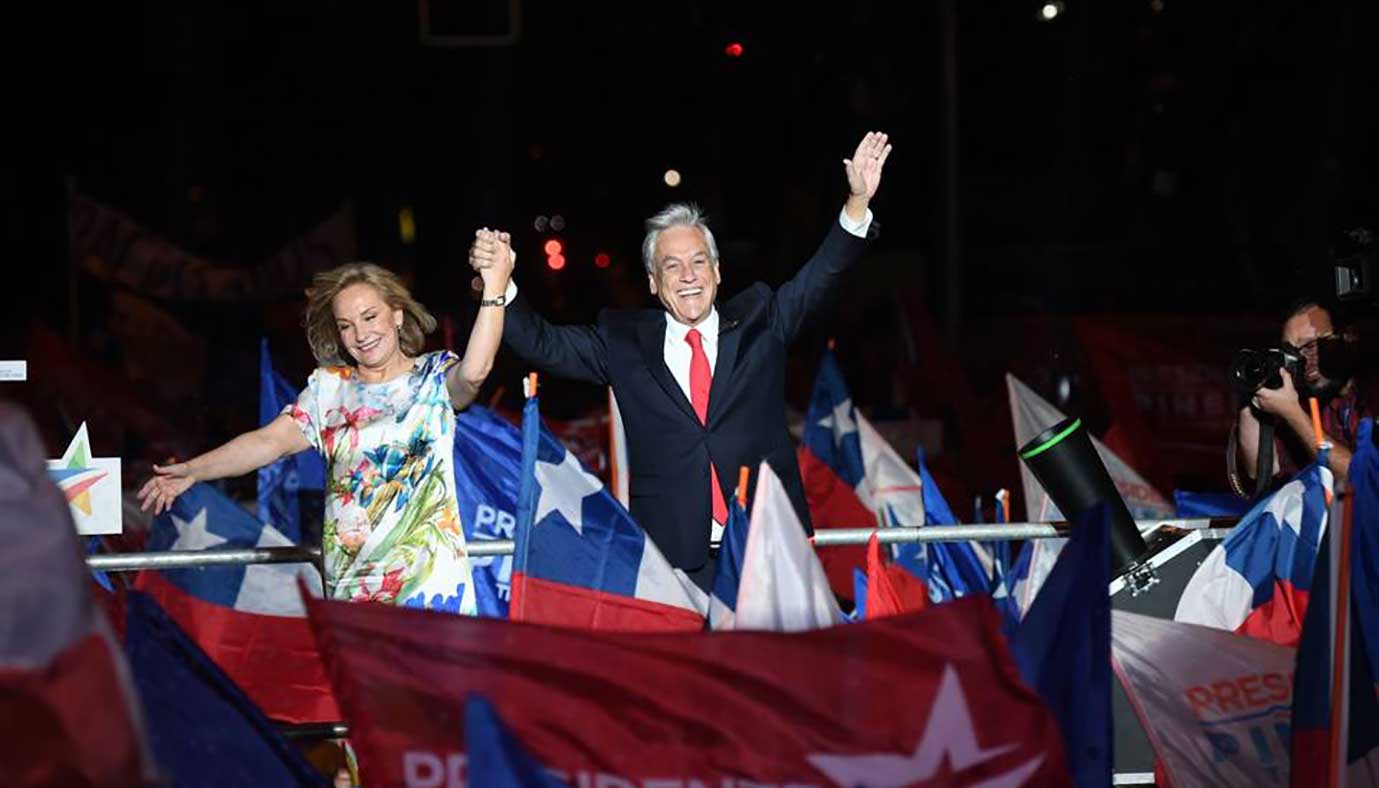Sebastian Pinera: new president will take Chile to the right
The former president’s return maintains conservative momentum in South America

A free daily email with the biggest news stories of the day – and the best features from TheWeek.com
You are now subscribed
Your newsletter sign-up was successful
Former president Sebastian Pinera has won Chile’s presidential run-off, comfortably beating rival Alejandro Guillier in an election that many had tipped to go down to the wire.
Pinera’s victory extends a shift to the right in South American politics, following the rise of conservative leaders in Argentina, Brazil, Paraguay, Venezuela and Peru.
With just under 99% of votes counted, Pinera, a 68-year old billionaire, is leading by 54.6% to 45.4%.
The Week
Escape your echo chamber. Get the facts behind the news, plus analysis from multiple perspectives.

Sign up for The Week's Free Newsletters
From our morning news briefing to a weekly Good News Newsletter, get the best of The Week delivered directly to your inbox.
From our morning news briefing to a weekly Good News Newsletter, get the best of The Week delivered directly to your inbox.
“The decisive nine-point victory, which came as a surprise because recent polls had suggested the race was much closer, showed that millions of Chileans saw Pinera as best suited to jump-start economic growth and to set the tone for contentious social debates,” says the Australian Financial Review.
In his victory speech, Pinera said Chile “needs agreements more than confrontations”. “The paths of the future unite us,” he added. “Sometimes the stories of the past separate us.”
In the first round of voting last month, Pinera took 36.6 per cent of the vote compared to Guillier’s 22.7 per cent.
The result “provides a mandate to reverse four years of economic and political reform put in place by President Michelle Bachelet,” The Daily Telegraph says.
A free daily email with the biggest news stories of the day – and the best features from TheWeek.com
In his concession speech, Guillier called his nine-point loss a “harsh defeat” and urged his supporters to defend Bachelet’s reforms.
-
 Nuuk becomes ground zero for Greenland’s diplomatic straits
Nuuk becomes ground zero for Greenland’s diplomatic straitsIN THE SPOTLIGHT A flurry of new consular activity in the remote Danish protectorate shows how important Greenland has become to Europeans’ anxiety about American imperialism
-
 ‘This is something that happens all too often’
‘This is something that happens all too often’Instant Opinion Opinion, comment and editorials of the day
-
 House votes to end Trump’s Canada tariffs
House votes to end Trump’s Canada tariffsSpeed Read Six Republicans joined with Democrats to repeal the president’s tariffs
-
 Epstein files topple law CEO, roil UK government
Epstein files topple law CEO, roil UK governmentSpeed Read Peter Mandelson, Britain’s former ambassador to the US, is caught up in the scandal
-
 Iran and US prepare to meet after skirmishes
Iran and US prepare to meet after skirmishesSpeed Read The incident comes amid heightened tensions in the Middle East
-
 Israel retrieves final hostage’s body from Gaza
Israel retrieves final hostage’s body from GazaSpeed Read The 24-year-old police officer was killed during the initial Hamas attack
-
 China’s Xi targets top general in growing purge
China’s Xi targets top general in growing purgeSpeed Read Zhang Youxia is being investigated over ‘grave violations’ of the law
-
 Panama and Canada are negotiating over a crucial copper mine
Panama and Canada are negotiating over a crucial copper mineIn the Spotlight Panama is set to make a final decision on the mine this summer
-
 Why Greenland’s natural resources are nearly impossible to mine
Why Greenland’s natural resources are nearly impossible to mineThe Explainer The country’s natural landscape makes the task extremely difficult
-
 Iran cuts internet as protests escalate
Iran cuts internet as protests escalateSpeed Reada Government buildings across the country have been set on fire
-
 US nabs ‘shadow’ tanker claimed by Russia
US nabs ‘shadow’ tanker claimed by RussiaSpeed Read The ship was one of two vessels seized by the US military